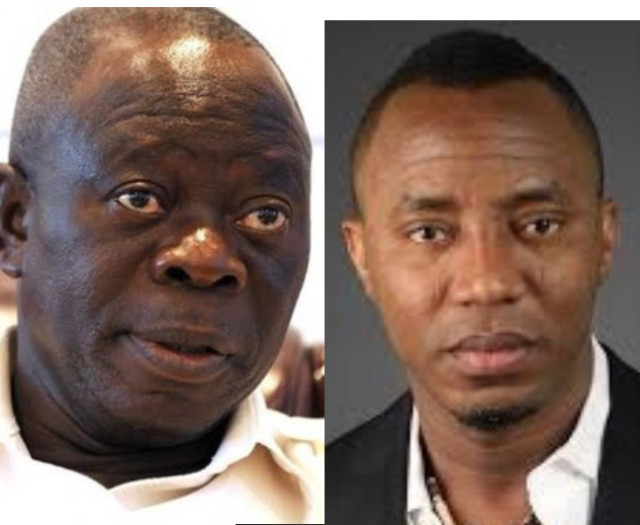The 2023 Presidential Candidate for the African Action Congress, Omoyele Sowore, and the Senator for Edo North, Adams Oshiomhole, debated Nigeria’s democratic model on Thursday, each presenting different perspectives on the state of democracy in Nigeria since 1999.
Sowore, speaking at a panel for a book launch of Senator Abdul Oroh’s “Demonstration of Craze: Struggles and Transition to Democracy in Nigeria,” asserted that the country’s shift to democracy in 1999 was taken over by individuals he called charlatans.
He added that pro-democracy activists made an error by allowing a select group to seize power. “We must acknowledge the mistake made during the advent of democracy in 1999. We should not have permitted charlatans to take over the democratic process; yet we did,”
Sowore remarked. He further stated, “We bear some responsibility for our current state. In the US, democracy is viewed as government by the people, for the people.”
He described Nigerian democracy as ‘morontocracy,’ a system overtaken by inept individuals, leading to undesirable outcomes.
Sowore argued that the current government continues to persecute civil rights activists due to the absence of frameworks that ensure citizens’ fundamental human rights and welfare, contrasting Nigeria’s situation with countries like South Africa, where those who fought against apartheid were recognized.
Looking ahead to the 2027 elections, Sowore claimed the 2023 elections constituted a selection rather than a true election, warning that a similar selective process could happen again in 2027.
He criticized security agents as the primary culprits in election rigging, alongside the Independent National Electoral Commission, stating, “Although I was introduced as a Presidential Candidate and have run twice, what I witnessed on election day was merely a selection. Without caution, another group will impose themselves in power, and nothing will change for us.” He added that “those in INEC are likely APC members,” indicating systemic bias.
In response, Oshiomhole, during his goodwill message, criticized Sowore’s negative outlook on the democratic process, contending that many activists at the time failed to engage in efforts to build a better democracy.
He encouraged leaders to inspire hope among citizens instead of discouraging them, asserting that flaws in the democratic system should motivate continued improvement. Oshiomhole stated, “Sowore mentioned a mistake not to contest in 1999.
This type of cynicism and skepticism misled some who fought for democracy, proclaiming that nothing good could emerge from the military, dismissing the possibility of real elections.”
He cautioned against sweeping generalizations that lead to hopelessness, explaining that disparaging the system leads bad actors to seize control and redefine power dynamics.
Oshiomhole concluded by urging leaders to foster hope, recognizing that while the present is not ideal, the discrepancy between current realities and future aspirations should drive efforts for progress.




















